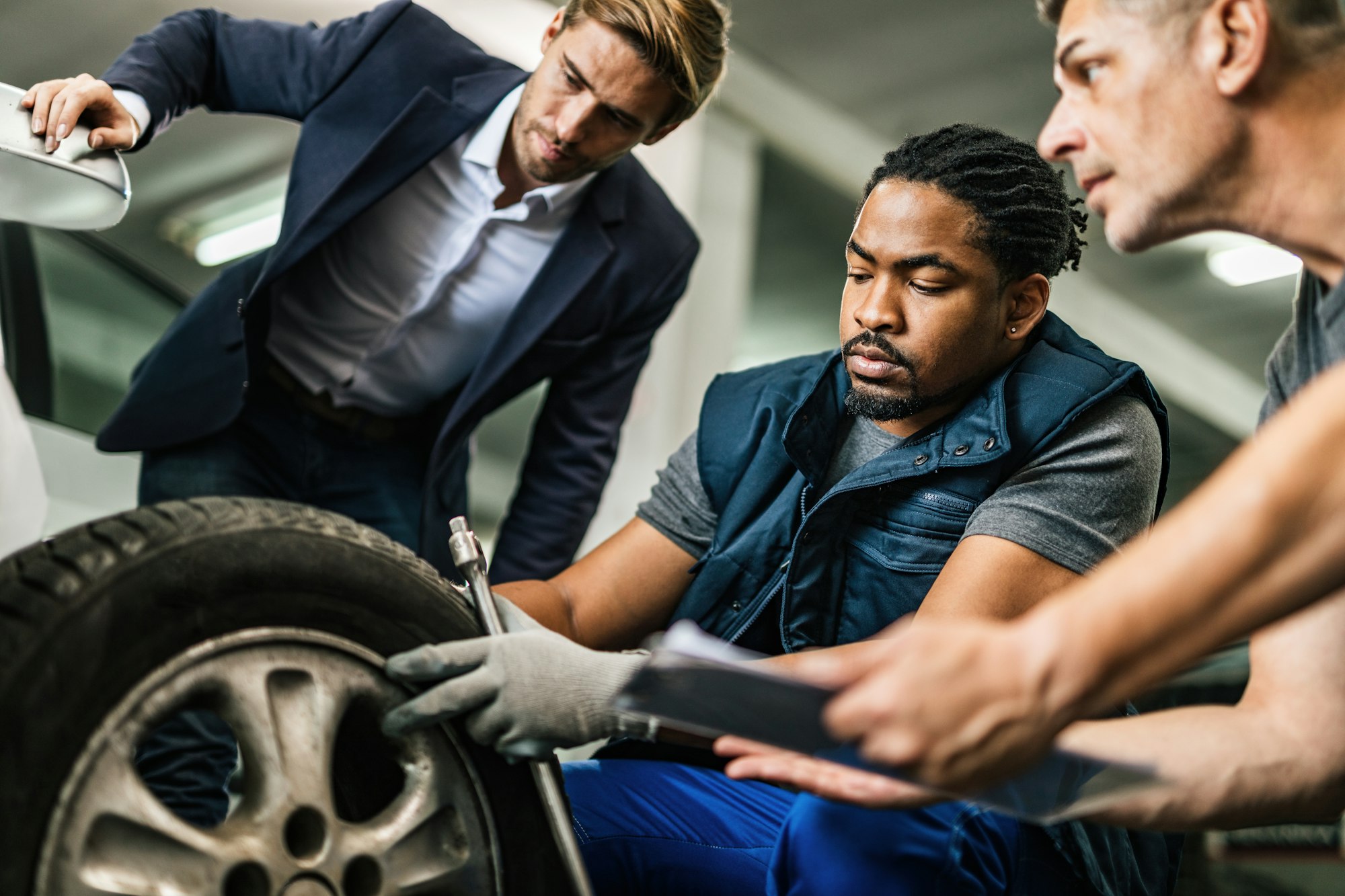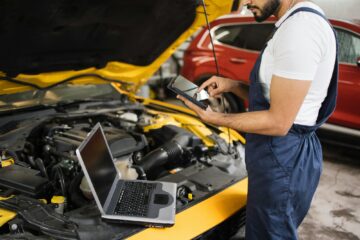
Duties of an Auto Mechanic
Automotive service technicians and mechanics, often called service technicians or service techs, inspect, maintain, and repair cars, trucks, motorcycles, and even marine vehicles.
The general duties of an Automotive Technician is to:
- Identify mechanical problems, often by using
- Test parts and systems to ensure that they are working properly
- Follow checklists to ensure that all critical parts are examined
- Perform basic care and maintenance, including changing oil, giving tuneups, checking fluid levels, and rotating tires
- Repair or replace worn parts, such as brake pads and wheel bearings
- Disassemble and reassemble parts
- Use testing equipment to ensure that repairs and maintenance are effective
- Explain to clients their automotive problems and the repairs done on their vehicles
Service technicians work on traditional mechanical components, such as engines, transmissions, and drive belts. However, they also must be familiar with a growing number of electronic systems. Braking, transmission, and steering systems, for example, are controlled primarily by computers and electronic components.
Other integrated electronic systems, such as accident-avoidance sensors, are becoming common as well. In addition, a growing number of technicians are required to work on vehicles that run on alternative fuels, such as ethanol and electricity.
Service technicians use many different tools, including computerized diagnostic tools and power tools such as pneumatic wrenches, lathes, welding torches, and jacks and hoists. These tools usually are owned by their employers.
Service technicians also use many common handtools, such as sockets and ratchets, wrenches, and pliers. These tools generally are owned by service technicians. In fact, experienced workers often have thousands of dollars invested in their personal tool collection. For example, some invest in their own set of pneumatic tools�tools, such as impact wrenches�powered by compressed air.
Service technicians sometimes specialize in a particular type of repair that may be subject to specific regulations or procedures. For instance, those focused on repairing air-conditioning system must follow federal and state regulations governing the handling, recycling, and disposal of refrigerants.
In some shops, technicians may specialize. The following are examples of types of service technicians:
Automotive air-conditioning repairers install and repair air conditioners and parts, such as compressors, condensers, and controls. They are trained in government regulations related to their work.
Brake repairers adjust brakes, replace brake rotors and pads, and make other repairs on brake systems. Some technicians specialize in both brake and front-end work.
Front-end mechanics align and balance wheels and repair steering mechanisms and suspension systems. They frequently use special alignment equipment and wheel-balancing machines.
Transmission technicians and rebuilders work on gear trains, couplings, hydraulic pumps, and other parts of transmissions. Extensive knowledge of computer controls, the ability to diagnose electrical and hydraulic problems, and other specialized skills are needed to work on these complex components.
Drivability technicians use their extensive knowledge of engine management, emission, fuel, electrical, and ignition systems to diagnose issues that prevent engines from performing efficiently. They often use the onboard diagnostic system of a car and electronic testing equipment such as a multimeter to find where the malfunction may be.









